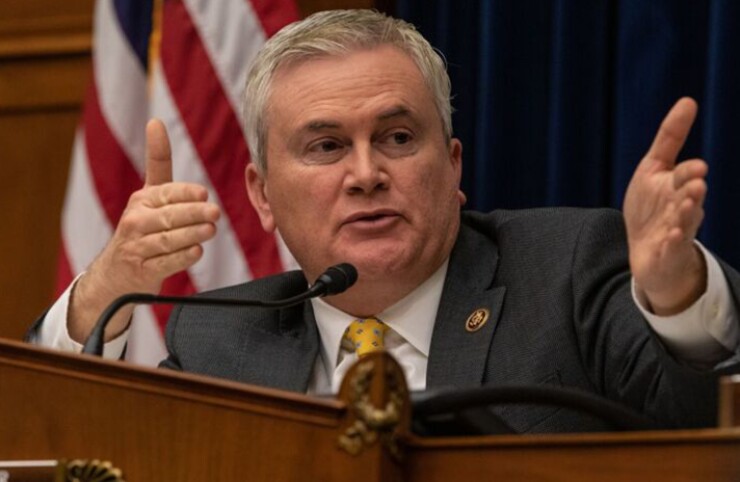Following Chevron ruling, House Republicans move to challenge Biden climate agenda
3 min read

In light of the U.S. Supreme Court’s recent reversal of the so-called Chevron doctrine, House Republican leaders Wednesday launched a review of the Biden administration’s environmental, social and governance agency regulations.
House Transportation and Infrastructure Committee Chair Rep. Sam Graves, R-Mo., and Rep. James Comer, R-Ky., chair of the House Oversight Committee, sent letters this week to Transportation Secretary Pete Buttigieg, Homeland Security Secretary Alejandro Mayorkas, and Environmental Protection Agency Administrator Michael Regan requesting information about any “rules, actions or decisions” that may be impacted by the high court’s decision in Loper Bright v. Raimondo, which overturned the 1984 Chevron v. Natural Resources Defense Council decision.
“The Biden administration has promulgated far more major rules, imposing far more costs and paperwork burdens, than either of its recent predecessor administrations,” the
Bloomberg News
They requested documents going back to when Biden took office, with a deadline of July 23.
The move marks the first in what many expect will be a rising number of challenges to federal agency guidelines and rules in the wake of the high court’s June 28 ruling. The 40-year-old Chevron precedent had mandated that federal courts defer to federal agencies’ interpretation of ambiguous or unclear laws. The doctrine originally arose from a challenge to the Clean Air Act in 1984. Now, federal courts will have the main responsibility to interpret ambiguous statutes.
The ruling was a “landmark separation of powers ruling,” said John Korzen, director of Appellate Advocacy Clinic at Wake Forest Law School, during a Monday webinar hosted by the Local Government Legal Center focused on SCOTUS opinions that affect local governments. “It’s going to make it more difficult for government agencies to win cases when their authority turns on questions of interpretations of statutes,” Korzen said. “We’re probably going see a lot of litigation challenging regulations in light of this decision.”
In a July 11 sector comment, Moody’s Investors Service also said the ruling was likely to trigger an increase in legal challenges, “likely creating a rocky transitional period.”
The court ruling “complicates new rulemaking” and renders vulnerable existing climate regulations, said Moody’s. Federal agencies, like the EPA, will have less power to address environmental issues, the agency said. Under Biden, the EPA has floated several regulations to address climate issues, such as greenhouse gas emissions and drinking water quality.
“Even beyond the EPA, the SEC’s recent climate-related disclosure rules are more likely to be reversed,” Moody’s said. “Absent new legislation, weakened agency power makes it less likely that the U.S. will meet its stated climate goals, raising the risk of heightened climate-related physical risks over the long term.”






